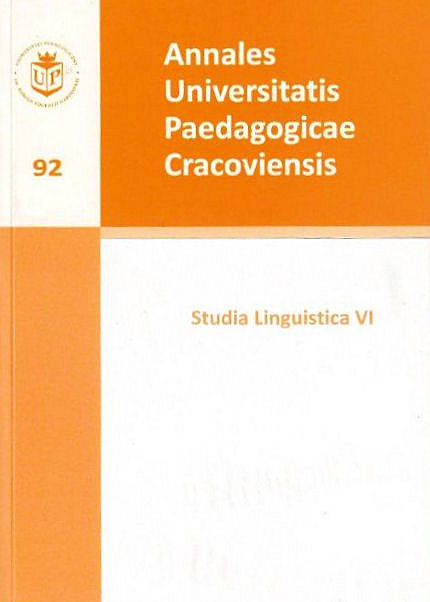Polski język religijny w Grodnie i na Grodzieńszczyźnie
Main Article Content
Abstract
Polish religious language in Grodno and the Grodno area is very unusual due to the historical and sociological specificity of the region. It has many varieties, depending on whether people have learnt it and used at home or whether it is used exclusively for worship. The language of young local priests differs considerably from the standard literary Polish: it has many peculiarities and it is used rather sporadically. Polish is the language of the Catholic media in Grodno but it is obligatory to include Belarusian translations of all texts since this is the primary language of the region. Inscriptions on Catholic tombstones, on the other hand, irrespective of when they were made, are always in Polish. They are perfect examples of the peculiar local usage and as such require proper linguistic research.
Downloads
Article Details
Author, submitting a text to the editorial board of the journal “Annales Universitatis Paedagogicae Cracoviensis. Studia Linguistica", certifies that the content of the article has not been published so far and that the work does not violate in any way the copyright or related rights of other person, as well as other rights of third parties, and that no one's rights to the work (or any part thereof) have been missed. After signing the contract, the property rights to the published materials are transferred to the Scientific Publisher of the University of the National Education Commission, Krakow.
“Annales Universitatis Paedagogicae Cracoviensis. Studia Linguistica” is an open access journal, and all its content is made available free of charge to users and institutions under the Creative Commons CC-BY-NC-ND 4.0 license (attribution, non-commercial use, no derivative works). Under this license, the authors agree that their work may be lawfully reused for any purpose, except for commercial purposes, without the prior consent of the author or publisher. Everyone can read, download, copy, print, distribute and process these works, provided that the author's marking and the original publication place are correct. Published texts may not be used to create derivative works (e.g. to translate and publish in another language without the consent of the publisher). This is in line with the BOAI (Budapest Open Access Initiative) definition. "Studia Linguistica" does not charge for submitting or processing articles.
